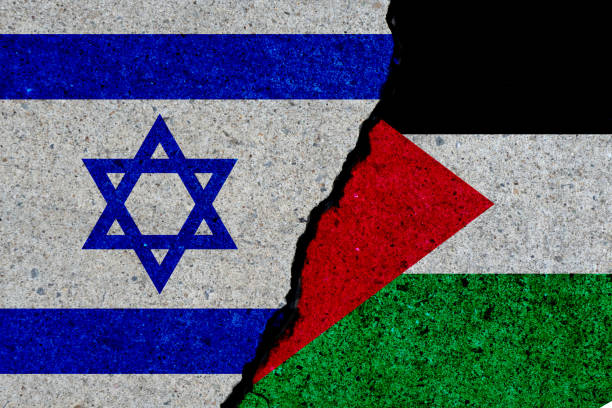In the on-going Israel-Hamas war which has gripped global attention for its ferociousness and brutality, we are inevitably faced with a range of questions on the unending feuds between the Arabs and Jews of the region which has been raging from antiquity. An on this it is difficult to avoid the Palestine question and why the two state solution proposed by the United Nations to resolve it has been difficult to implement.
Why has Israel, which proclaimed its independence on May 14, 1948, continued to stand in the way of the realisation of similar statehood for the Palestinians as proposed by the United Nations? And as the world hurtles dangerously towards a global conflict on account of the Israeli-Hamas war can the Israelis risk everything including an ultimately self-destructive nuclear war in order to retain the status quo in Palestine in defiance to world public opinion? What really do the Jews want in Palestine and in the Middle East for that matter and how realisable is their agenda in the region?
Over the ages, if there is any particular group of people who have singularly impacted the world with their ideas, inventions, and practical application of knowledge to advance the progress of humankind, the Jews stand unquestionably above all.
In modern philosophy, they gave the world Karl Marx, in the world of literature there was Heinrich Heine and in the world of science, Albert Einstein, to name but a few of the countless outstanding personalities of Jewish origin in the fields of medicine, economics, politics, philosophy, science and technology and many other areas of human endeavour, whose phenomenal contributions has been and continues to impact positively on the course of human development.
3,585MW capacity underutilised as debts to NDPHC hit N180bn
Queue resurfaces in Abuja as petrol sells for N640
But despite all these unique gifts and their immense contributions to mankind as a group, Jews have remained a troubled and unsettled people throughout their history, from ancient times to the present.
History and the scriptures first recorded them as being under collective captivity and subjugation in ancient Egypt under the pharaohs from where they subsequently migrated to the land of Canaan which roughly constitutes the present day Israel and Palestine. There again, they came under periodic attacks from neighbouring tribes resulting ultimately in their being conquered by the ancient Babylonians who were the precursors of the present day Iraqis. They were only freed after the defeat of the Babylonians by the ancient Persians (present day Iranians) under King Darius.
Under the Roman Empire, which included the entire present day Middle East, yet again the Jews were expelled from their ancestral land to Spain and Portugal where their tortured existence finally led to their displacement during the RECONQUISTA, finding themselves once again as refugees in central, and eastern Europe and the Ottoman Empire. Here again, they were herded into ghettoes as unwanted immigrants and residents courted for their knowledge of the ways of life and their connections and ability to fix things good and bad. But they were also hated for precisely the same reasons and also for not culturally assimilating and imbibing the ways of their hosts.
In the late 19th century, an Austrian journalist of Jewish origin, Theodore Hertzl, was assigned by his newspaper to cover the trial of a French Jewish officer, Captain Pierre Dreyfus. Dreyfus was accused of leaking the military plans of the French Military High Command to the Prussians (Germans) which led to the defeat of France in the Franco-Prussian war of 1871.
As Dreyfus was subsequently found guilty of treason and sentenced to life imprisonment to be served in a French Pacific penal colony, Hertzl could not help but harbour the feeling that Captain Dreyfus’ fate was more because of his Jewishness than anything else. He concluded that the only way the travails of Jews, especially in Europe, could be remedied was by a return to their ancestral land of Zion which at the time was known as Palestine and under suzerainty of the Ottoman Empire.
Thus Hertzl with his fellow Jewish associates like Chaim Weizman and Zeev Jabotinsky established the World Zionist Organisation in 1897 with two main tasks; securing the land of Palestine from their Ottoman rulers and ensuring that as many Jews as possible emigrate from Europe and elsewhere to form a new Jewish state there.
The state of Israel was formed from a convergence of two overarching interests; the need for a homeland for the Jews as envisioned by Hertzl and world Jewry, and the need to secure the Middle East with its vast oil and gas reserves firmly in the western sphere. The Middle East had always been an area of strategic importance from the Greek, Roman, Mongol and Ottoman times. It was the ancient land route to the Far East and a critical junction between the European and Asian continents for commerce and trade, exchange of knowledge and ideas. With the expansion of western colonial powers, the Middle East became even more so as the race for the riches of the Far East trade led to fierce competition between them.
The opening of the Suez Canal in 1859 in Egypt further boosted the strategic importance of the region as it created a quicker, more convenient alternative shipping route to the Far East. Before then, ships from Europe had to navigate down to the southern tip of Africa before heading the Far East.
With the discovery of vast reserves of oil in the middle nineteenth century in the region, the Middle East literarily became a “hot cake’’ and the western powers needed a client state to protect both the Suez Canal and their oil interests in the region. Trouble is they could not possibly rely on the Ottomans who were in control of the region at the time. The Ottomans were in cahoots with Imperial Germany and there were plans to build a Berlin-Baghdad railway. And they could not trust the Arabs on whose lands both the Suez Canal and oil were either, because they were Muslims and not culturally in tandem with the western European cultural values.
It was out of this dilemma that the idea of allowing and supporting the creation of the state of Israel by Britain finally came to fruition in 1948. (To be continued)

 Join Daily Trust WhatsApp Community For Quick Access To News and Happenings Around You.
Join Daily Trust WhatsApp Community For Quick Access To News and Happenings Around You.


